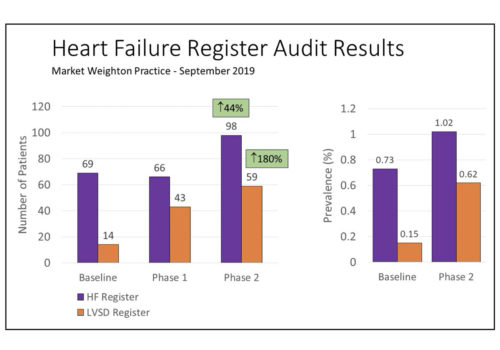Atrial fibrillation (AF) is the most common arrhythmia encountered in clinical practice. Its incidence rises with age: in the over-65s the prevalence is 4% but this rises to 8.8% in the over-80s. The prevalence of AF is on the rise due, in part, to an ageing general population and to increased longevity resulting from improved medical care. AF is clinically important because it contributes to the incidence of heart failure, stroke and overall cardiovascular mortality. In addition, when strokes occur in association with AF, patients suffer substantial mortality, disability and longer hospital stays compared to stroke patients without AF, leading to an increased financial and resource burden on the NHS.






















